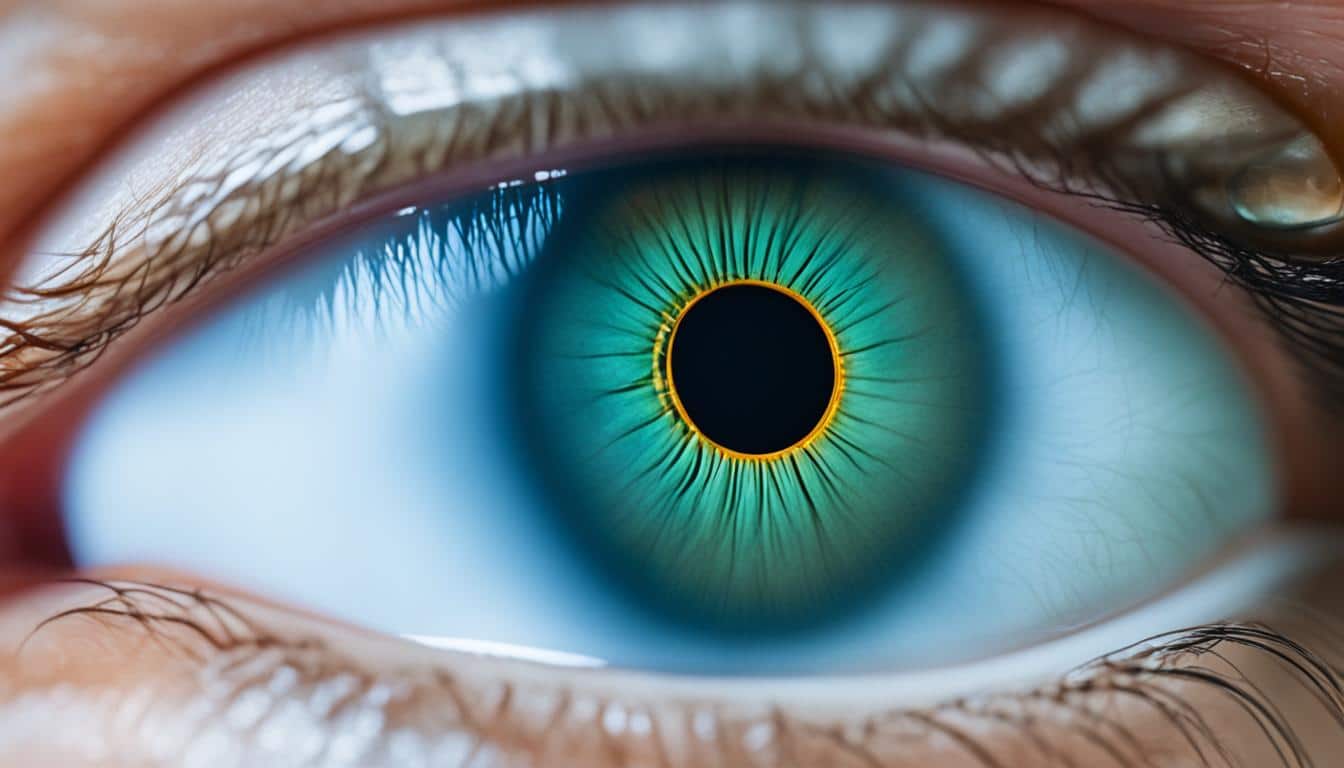Picture this – you’re sitting in an office, squinting at your computer screen, struggling to read the words. You realize it’s time to address your vision issue, and your doctor confirms that you have cataracts. You know that cataract surgery is the next step to improve your eyesight, but you’re worried about the cost.
While cataract surgery can be a life-changing procedure, it can also be a significant financial investment. That’s where tax deductions come into play. Is it possible to make cataract surgery more affordable through tax benefits?
Well, the good news is that the IRS does allow certain medical expenses, including cataract surgery, to be tax deductible. But before you start celebrating, there are a few things you need to know.
In this article, we’ll explore the ins and outs of cataract surgery as a tax deduction. We’ll break down the eligibility criteria, limitations, and implications of claiming this deduction. So, grab a cup of coffee, sit back, and let’s dive into the world of cataract surgery and taxes.
Key Takeaways:
- Under certain conditions, cataract surgery can be tax deductible.
- Medical and dental expenses must exceed 7.5% of your adjusted gross income (AGI) to qualify for deductions.
- You must itemize your deductions on Schedule A Form 1040 or 1040-SR to claim the deduction.
- Keep track of all eligible medical expenses, including cataract surgery costs, to maximize your deductions.
- Consult a tax professional or use tax software to ensure you are navigating the tax regulations correctly.
Medical and Dental Expenses
When it comes to taxes, deducting your medical and dental expenses can provide significant relief. It allows you to offset some of the financial burden associated with healthcare costs. In fact, for the tax year 2022, you can claim deductions for a wide range of medical and dental expenses, including those related to cataract surgery. Let’s take a closer look at what you can deduct and how to claim these deductions.
Firstly, it’s important to note that you can deduct unreimbursed, qualified medical and dental expenses that exceed 7.5% of your adjusted gross income (AGI). This means that if your AGI is $50,000, your deductions must exceed $3,750 to be eligible for the deduction. Keep in mind that deductible expenses include health insurance premiums, hospital stays, doctor appointments, prescriptions, and even medical equipment.
Additionally, these deductions are not limited to your own expenses. You can also claim expenses paid for your spouse or dependents, further reducing your tax liability. However, to claim these deductions, you must itemize your deductions on Schedule A Form 1040 or 1040-SR. Itemizing your deductions allows you to list out all your eligible expenses instead of taking the standard deduction.
When it comes to cataract surgery, the expenses associated with the procedure can be included in your deductible medical expenses. This means that you can write-off the costs of cataract surgery from your taxes, reducing your overall tax burden. However, it’s crucial to ensure that your total medical expenses for the year exceed 7.5% of your AGI before claiming these deductions.
To illustrate the potential tax savings, here’s an example:
John, who has an AGI of $60,000, underwent cataract surgery that cost him $5,000. He also incurred other medical expenses amounting to $4,000 during the year. Since 7.5% of his AGI is $4,500, John’s total deductible medical expenses are $9,000 ($5,000 + $4,000). As a result, he can claim a deduction on the amount exceeding the 7.5% threshold, which is $4,500 in this case.
| Expense Category | Amount |
|---|---|
| Cataract Surgery | $5,000 |
| Other Medical Expenses | $4,000 |
| Total Deductible Medical Expenses | $9,000 |
| Threshold (7.5% of AGI) | $4,500 |
| Deductible Amount | $4,500 |
Remember, claiming deductions for cataract surgery and other medical expenses requires careful documentation and proper record-keeping. Be sure to keep all receipts, invoices, and other relevant documents as proof of your expenses. If you’re unsure about the eligibility of certain expenses or need assistance with navigating the tax laws surrounding medical deductions, it’s always a good idea to consult a tax professional.
Now that you understand how medical and dental expenses can be deducted from your taxes, let’s explore some commonly overlooked deductions in the next section.
Easily Overlooked Medical and Dental Expenses
When it comes to claiming deductions for your medical and dental expenses, there are certain costs that are easily overlooked but can be substantial in saving you money. Don’t miss out on these deductible medical expenses that could put some extra cash back in your pocket!
Alternative Treatments:
Did you know that alternative treatments like acupuncture and visits to nontraditional medical practitioners can be eligible for deductions? These treatments, although not typically covered by insurance, can add up over time. So, be sure to keep track of these expenses and include them when itemizing your deductions.
Special Considerations for Newborns:
Welcoming a little one into the world can bring joy and additional expenses. Breast pumps and nursing supplies are often overlooked when calculating deductible medical expenses. These costs can be quite substantial, so make sure to track and include them when claiming your deductions.
Eye and Ear Care:
If you’ve had eye exams or require the use of hearing aids, don’t forget to include these expenses in your deductible medical costs. These can be easily overlooked, but they can significantly contribute to your overall expenses, making them eligible for deduction.
Home Improvements for Disabilities:
If you or a family member require home modifications for accessibility due to a disability, such as ramps or grab bars, you can deduct these expenses as well. These adaptations can often be costly, so take advantage of the deductions available to you.
Other Overlooked Deductible Expenses:
-
Adaptive equipment for disabilities
-
Diabetes-related costs like blood-testing kits and insulin
-
Lodging expenses for medical treatment
-
Attending medical conferences related to chronic illnesses
-
Organ transplants
-
Home care for activities of daily living (ADL)
-
Substance use disorder treatment
-
Reproductive health expenses
-
Service animals
-
Dental treatments
| Expense Category | Description |
|---|---|
| Alternative Treatments | Acupuncture, nontraditional medical practitioners |
| Special Considerations for Newborns | Breast pumps, nursing supplies |
| Eye and Ear Care | Eye exams, hearing aids |
| Home Improvements for Disabilities | Ramps, grab bars |
Keep in mind that this is not an exhaustive list of deductible medical and dental expenses. Be sure to consult IRS Publication 502 for a complete and up-to-date list of eligible deductions.
Now that you’re aware of these easily overlooked medical and dental expenses, you can make sure to include them in your deductions and maximize your tax savings. Remember to keep accurate records and consult with a tax professional to ensure you’re taking full advantage of all the deductions available to you.

Can I Write-off Cataract Surgery on My Taxes?
If you’ve undergone cataract surgery or any other eye surgery to correct defective vision, you may be wondering if it’s possible to write off the expenses on your taxes. Well, the good news is that according to the IRS, cataract surgery can be included in your medical expenses and deducted from your taxes.
However, there are a few conditions you must meet to be eligible for this deduction. Firstly, your total medical expenses for the year must exceed 7.5% of your adjusted gross income (AGI). This means that if your AGI is $60,000, your medical expenses must be over $4,500 to qualify for the deduction.
Additionally, you must itemize your medical expenses when filing your taxes. This means that instead of taking the standard deduction, you will need to itemize and provide a detailed breakdown of your medical expenses on Schedule A Form 1040 or 1040-SR.
It’s important to note that not all medical expenses can be claimed as deductions. The IRS has specific guidelines and limitations, so it’s advisable to consult a tax professional or use tax software to determine if claiming cataract surgery as a medical expense is sensible for your situation. They can provide personalized advice and help you maximize your deductions within the regulations.
Remember, deducting medical expenses, including cataract surgery, can potentially save you money, so it’s worth exploring this option if you meet the eligibility criteria. Take the time to gather all your medical and financial documents, consult an expert, and make an informed decision about your health care deductions.
What are the Limitations to Writing-Off Cataract Surgery on My Taxes?
While cataract surgery and other medical expenses can be deducted from your taxes, it’s important to be aware of the limitations that come with it. One key limitation is that you can only deduct medical and dental expenses that exceed 7.5% of your adjusted gross income (AGI). Let’s say your AGI is $50,000, you can only deduct expenses that exceed $3,750 ($50,000 × 7.5%).
Additionally, to claim these deductions, you must itemize your deductions on Schedule A Form 1040 or 1040-SR. This means you need to keep track of all your medical expenses, including receipts and documentation, to ensure you can substantiate your deductions during tax time.
To navigate these limitations effectively, it’s recommended to consult a tax professional or use tax software. These resources can help you maximize your deductions and ensure you are taking full advantage of the available benefits while staying within the limitations set by the IRS. By staying organized and informed about your deductible medical expenses, you can make the most out of your tax situation.








